Search
Search Results
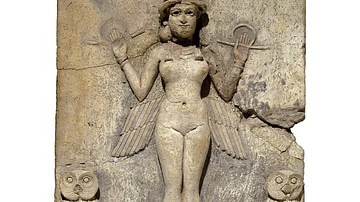
Definition
Mesopotamian Religion
Mesopotamian religion was central to the people's lives. Humans were created as co-laborers with their gods to hold off the forces of chaos and to keep the world running smoothly. As in ancient Egypt, the gods were honored daily for providing...
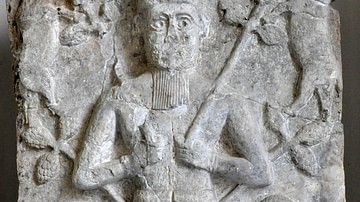
Article
The Mesopotamian Pantheon
The gods of the Mesopotamian region were not uniform in name, power, provenance or status in the hierarchy. Mesopotamian culture varied from region to region and, because of this, Marduk should not be regarded as King of the Gods in the same...
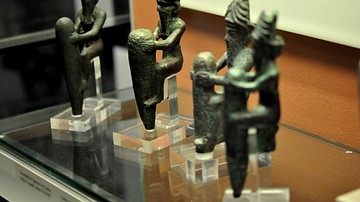
Article
Ancient Mesopotamian Beliefs in the Afterlife
Unlike the rich corpus of ancient Egyptian funerary texts, no such “guidebooks” from Mesopotamia detail the afterlife and the soul's fate after death. Instead, ancient Mesopotamian views of the afterlife must be pieced together...
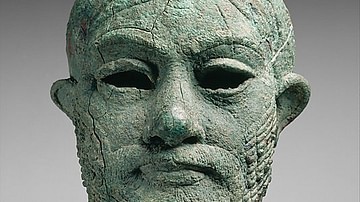
Definition
Mesopotamian Naru Literature
Mesopotamian Naru Literature was a literary genre, first appearing around the 2nd millennium BCE, which featured a famous person (usually a king) from history as the main character in a story that most often concerned humanity's relationship...
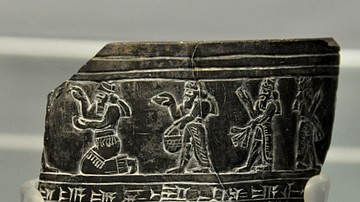
Definition
Nergal
Nergal (also known as Erra and Irra) is the Mesopotamian god of death, war, and destruction. He began as a regional, probably agricultural, god of the Babylonian city of Kutha in the Early Dynastic Period I (c. 2900-2800 BCE). As his temple...
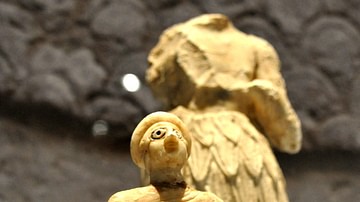
Definition
Religion in the Ancient World
Religion (from the Latin Religio, meaning 'restraint,' or Relegere, according to Cicero, meaning 'to repeat, to read again,' or, most likely, Religionem, 'to show respect for what is sacred') is an organized system of beliefs and practices...
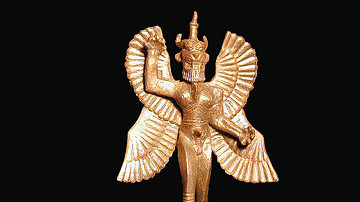
Definition
Pazuzu
Pazuzu is an Assyrian/Babylonian demonic god who was most popular in the first millenium BCE. He was the son of Hanbi (also Hanba), king of the demons of the underworld, and brother to Humbaba, the demon-god protector of the Cedar Forest...
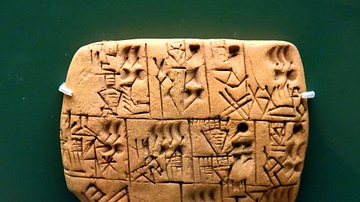
Article
The Hymn to Ninkasi, Goddess of Beer
The Hymn to Ninkasi is at once a song of praise to Ninkasi, the Sumerian goddess of beer, and an ancient recipe for brewing. Written down in c. 1800 BCE, the hymn is no doubt much older as evidenced by the techniques it details which scholars...

Definition
Ereshkigal
Ereshkigal (also known as Irkalla and Allatu) is the Mesopotamian Queen of the Dead who rules the underworld. Her name translates as 'Queen of the Great Below' or 'Lady of the Great Place.' She was responsible for both keeping the dead within...
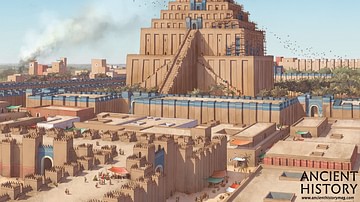
Collection
Mesopotamia: Government & Religion
The polytheistic religion of ancient Mesopotamia was instrumental in shaping its government and held great significance in the lives of its people. Mesopotamian religion revolved around the belief that humans were created to work alongside...